Are you struggling with hair loss? Examine the various causes of hair loss and their solutions. Uncover expert insights, tips, and remedies for maintaining healthy hair.
Table of Contents
Introduction
Loss of hair can be upsetting because it affects one’s self-worth and general well-being. For anyone facing this problem, it is essential to comprehend the many causes of it and look into workable treatments. This thorough article explores the many causes of hair loss and their solutions in details.
5 Causes of Hair Loss and Their Solutions
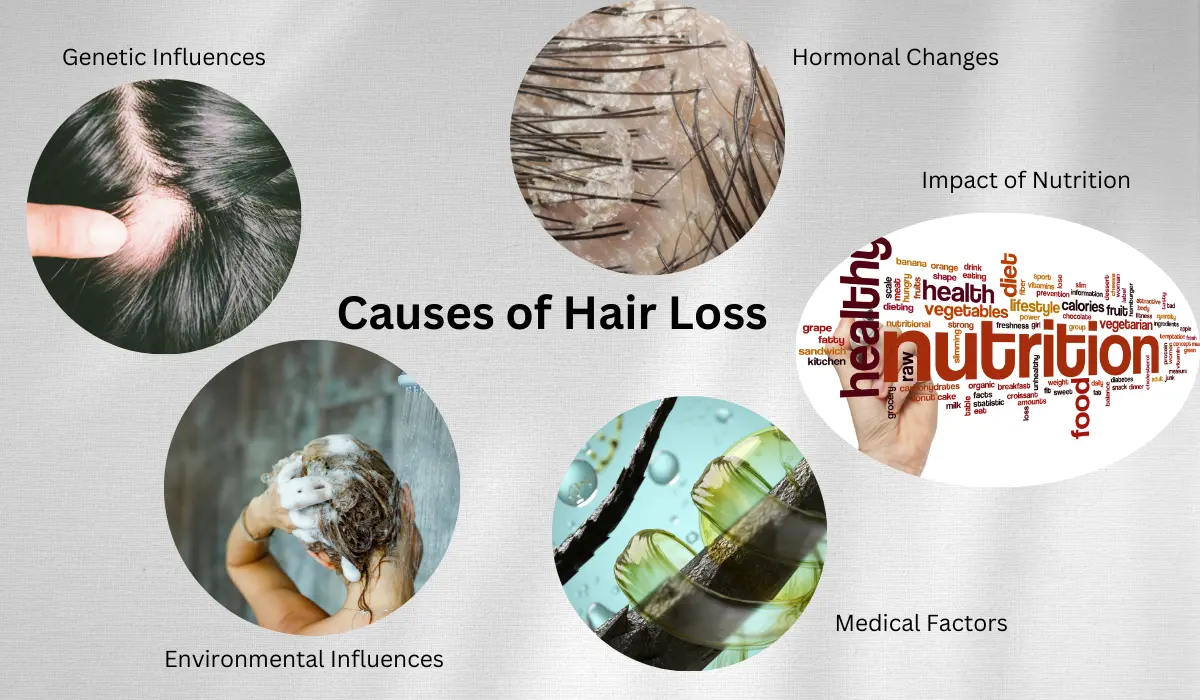
Here are the main 5 causes of hair loss and their corresponding solutions:
Genetic Influences
Hair loss is largely influenced by genetics. Understanding one’s susceptibility to androgenetic alopecia involves taking into account family history. The hair development cycle is impacted by this genetic propensity, resulting in varied degrees of hair loss in each person.
- Medications: Prescription medications like minoxidil and finasteride can slow down hair loss and promote hair growth.
- Hair Transplant: Hair follicles from dense hair places are moved to bald spots by surgical techniques including hair transplantation, which provides a long-term solution.
- Laser Therapy: Devices that use low-level laser therapy can increase hair density and stimulate new hair growth.
Hormones and Hair Health
Dihydrotestosterone (DHT) fluctuations in particular can cause hair loss. Thinning or losing of hair can result from hormone imbalances, pregnancy, menopause, or other conditions that disrupt the cycle of hair growth. A good understanding of the hormonal changes that occur at different phases of life can assist detect and treat hair loss.
- Hormone Therapy: Hormone replacement therapy or specific medications can regulate hormonal imbalances contributing to hair loss.
- Stress Management: Stress-relief techniques like meditation, yoga, or counseling help balance hormones naturally.
- Consultation with Healthcare Professional: Ask a medical professional for guidance on specialized treatments intended to address hormonal abnormalities.
Impact of Nutrition
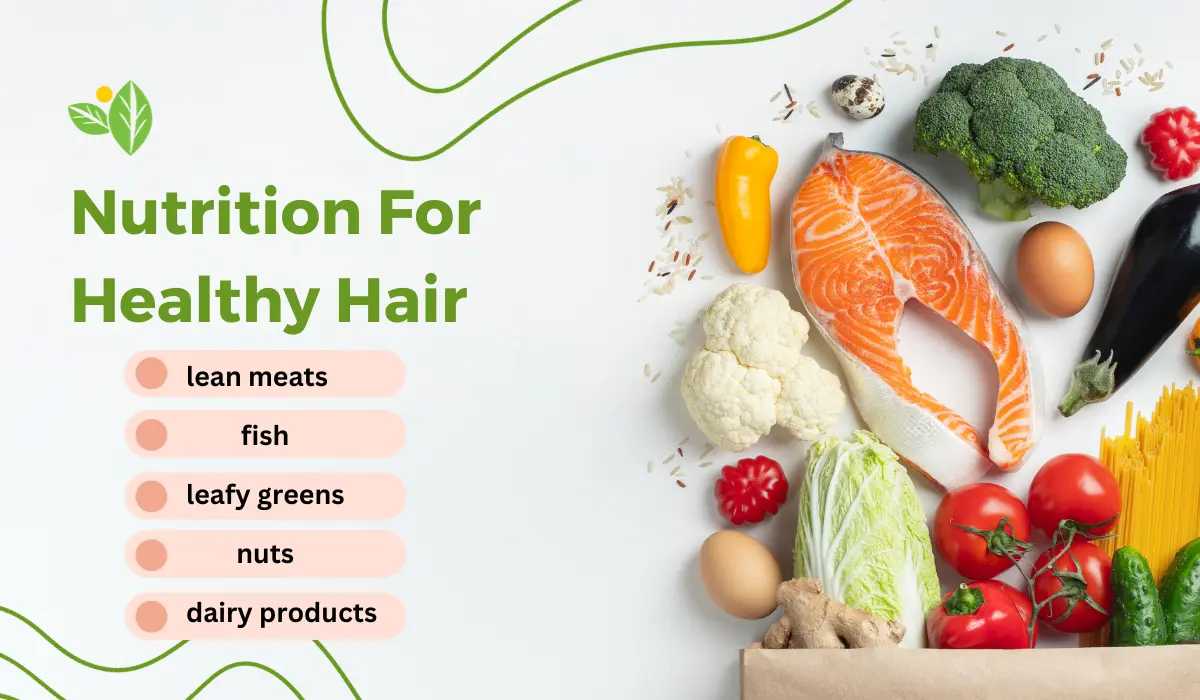
Inadequate diet can affect the health of hair, especially if there are deficits in iron, protein, vitamins D, B6, and B12, and minerals like zinc. Hair loss may result from poor food choices.
- Balanced Diet: Eat foods like lean meats, fish, leafy greens, nuts, and dairy products to get your fill of iron, zinc, vitamins D, B6, and B12, and proteins.
- Supplements: To address specific nutrient shortages, take into account supplements under the advice of a professional.
- Consult a Nutritionist: Consult a dietitian for advice on a customized diet that supports healthy hair.
Environmental Influences
Hair follicle damage brought on by harsh chemicals, pollution, or over styling can result in hair loss. In addition, bad lifestyle decisions like stress, smoking, and lack of sleep affect the general health of hair. Preventing hair loss requires being aware of these issues.
- Gentle Hair Care: To preserve hair follicles, use gentle shampoos, refrain from overusing heat styling tools, and limit your exposure to harsh chemicals.
- Protective Styling: To avoid putting too much strain and straining on the hair shafts, choose relaxed hairstyles.
- Healthy Lifestyle Changes: To preserve the general health of your hair, make sure you get enough sleep, control your stress, and give up smoking.
Medical Factors
Hair loss is a common side effect of several medical illnesses, including alopecia areata and thyroid disorders, as well as therapies like radiation or chemotherapy.
- Medical Intervention: Under expert supervision, address underlying medical issues that are causing hair loss, such as autoimmune diseases or thyroid disorders.
- Supportive Treatments: Investigate non-traditional approaches to hair loss such as PRP (Platelet-Rich Plasma) therapy, scalp massages, or particular hair growth serums.
- Wigs or Hairpieces: Wearing wigs or hairpieces can provide temporary coverage for individuals undergoing medical procedures or experiencing severe hair loss.
Causes of Hair Loss and Their Solutions In Teenagers And Adults
| Causes of Hair Loss | Teenagers | Adults | Solutions |
| Hormonal Changes | Fluctuations during puberty affecting hair growth cycles | Hormonal shifts due to aging or hormonal imbalances | – Hormone therapy (under medical guidance) – Stress management techniques |
| Stress | Academic, social, or emotional stress | Work-related stress, lifestyle, or emotional pressures | – Counseling or therapy for stress reduction – Adopting stress-relief practices: meditation, yoga |
| Nutritional Deficiencies | Poor diet, eating disorders impacting nutrient intake | Inadequate intake of essential nutrients due to dietary habits | – Balanced diet rich in proteins, vitamins, minerals – Supplements under professional guidance to address deficiencies |
| Hairstyling Practices | Excessive use of heat tools, tight hairstyles | Over styling, harsh treatments damaging hair follicles | – Gentle hair care practices: minimal heat, gentle styling – Avoiding tight hairstyles |
| Underlying Health Conditions | Alopecia areata, thyroid disorders, infections | Thyroid issues, alopecia, scalp infections | – Medical intervention to address underlying conditions – Tailored treatments based on specific health issues |
| Medications or Treatments | Side effects of medications or medical treatments | Medications or treatments impacting hair growth | – Consulting healthcare provider for alternative medications or supportive treatments |
Conclusion
In order to address this issue, it is essential to comprehend the many causes of hair loss and look into practical remedies. People may actively prevent hair loss and advance ideal hair health by addressing underlying causes, forming healthy habits, getting expert advice, and leading a balanced lifestyle.
FAQs Related to Causes Of Hair Loss And Their Solutions:
Is hair loss reversible?
In certain cases, certainly. Hereditary factors may restrict the amount of hair loss that can be reversed, however treating underlying problems such as malnutrition or hormone imbalances may help.
Can hair loss be prevented entirely?
Adopting a healthy lifestyle, controlling stress, and sticking to a balanced diet can greatly lower the chance of hair loss, even though some factors might not be avoidable.
Are over-the-counter products effective against hair loss?
The effectiveness of some products varies, but they might be helpful for some forms of hair loss. Seeking expert advice is recommended for tailored direction.
Can hairstyles contribute to hair loss?
Tight hairstyles or excessive pulling can cause traction alopecia, a kind of hair loss. Choosing looser styles can help avoid this problem.
Can supplements helps in reducing hair loss?
The effectiveness of supplements that address nutritional deficiencies in the hair can vary depending on the demands of the individual and the underlying causes of hair loss.
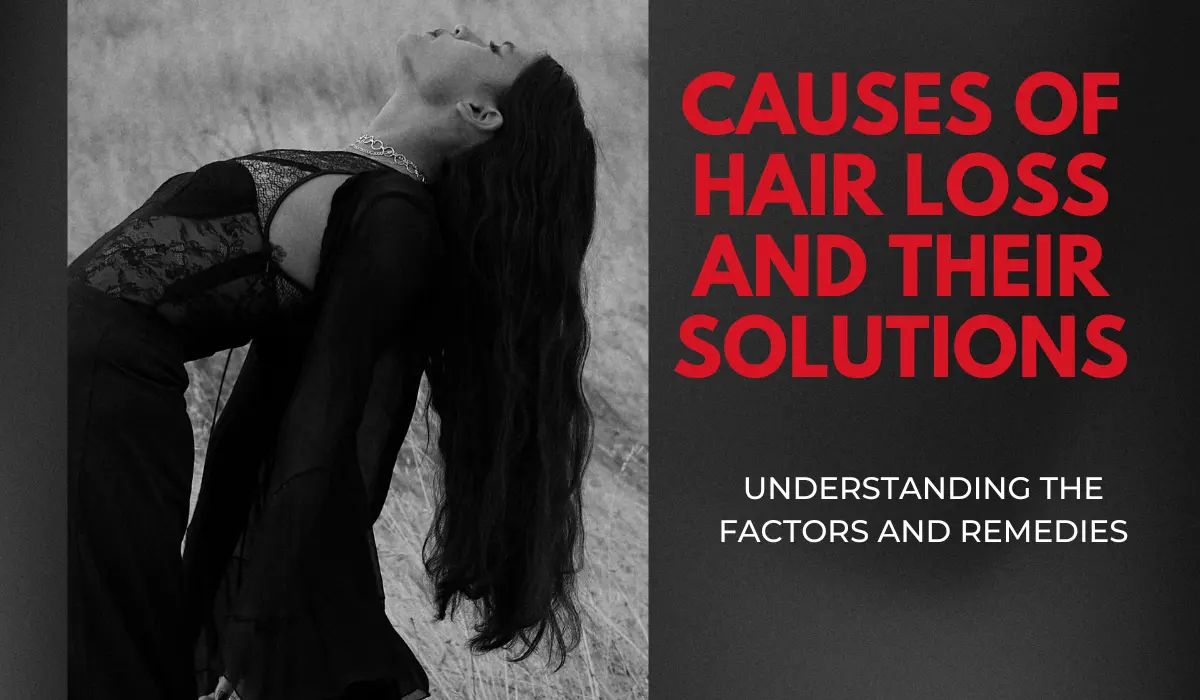
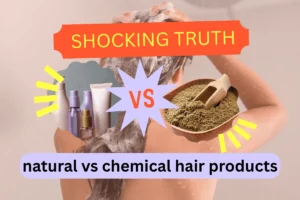




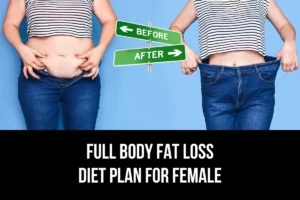
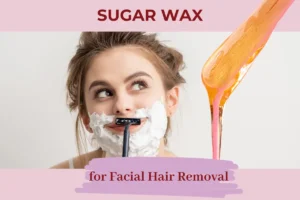
1 thought on “5 Causes of Hair Loss and Their Solutions”